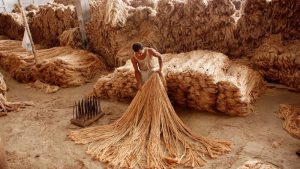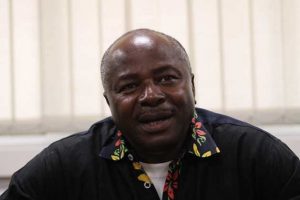Hyderabad, India – Amid current uproar on inequality and prejudice faced by many women in India, what’s heartening is that positive changes are happening for some women in the rural sector – one of the toughest groups to reach due to the gender and social dynamics, poverty and low education levels in the villages. Years of research and sustained effort in the area of Integrated Watershed Management is creating a collaborative spirit and changing the lives of rural women in India.
The impact of these initiatives has been captured through a sample study of women in remote villages in Madhya Pradesh, represented in videos being released for International Women’s Day <http://youtu.be/WWu2IvyBW7g?list=PLfgmABxzdVefk2kk9sC68fQjiAhNhI3hb>. Get to know these women as they tell about the odds they had to overcome to emerge as leaders in their community.Partnerships have been critical to make this happen, involving government, NGOs, international scientific research organizations and now even private companies are taking this on in their corporate social responsibility (CSR) projects. The International Crops Research Institute for the Semi-Arid Tropics (ICRISAT) is currently working on 23 watershed projects in nine states of India – including Rajasthan, Madhya Pradesh, Maharashtra, Gujarat, Tamil Nadu, Odisha, Karnataka and Andhra Pradesh, Telangana State, with the state and national governments, and NGOs. Companies like SAB Miller, Coca Cola, JSW Foundation, Asian Paints, Power Grid Corporation of India, and Rural Electrification Corporation of India, have taken up watershed projects as part of their Corporate Social Responsibility initiatives, in partnership with ICRISAT.
The efforts under the watershed projects included:
• Socio-economic surveys conducted to identify poor women farmers who needed the most help.
• The watershed committee made it mandatory to have 50% women participation.
• For the first time in the watershed villages, women and men received equal wages of Rs 100 for the labor work they undertook for the watershed project.
• Self-Help Groups (SHGs) were formed to financially empower women farmers by identifying new avenues for earnings to supplement household income, apart from saving and credit activities.
In line with the watershed projects’ goal of transforming dry arid lands into arable land, women were trained through capacity building programs. Self-Help Group members were educated and trained in various techniques on:
• Rainwater Harvesting
• Water-use efficiency
• Increasing crop productivity through use of:
• Quality seeds
• Applying the right nutrients
• Adopting new land management practices
They were taught to prepare:
• Organic manure
• Organic pesticide
• Raise kitchen gardens to bolster family nutrition
* Nursery raising
* Village seed banks
Recognizing the watershed projects’ impacts, the Department of Land Resources, Ministry of Rural Development, Government of India, awarded ICRISAT the Abhinav Puraskar (Innovative Award <http://www.icrisat.org/newsroom/latest-news/happenings/happenings1663.htm#3>) in Integrated Watershed Management at a ceremony held in New Delhi.
Source: ICRISAT News <ICRISAT.News@cgiar.org>




